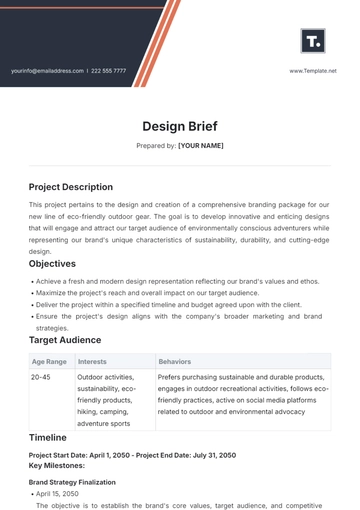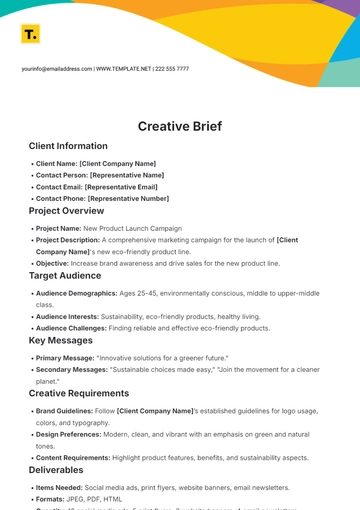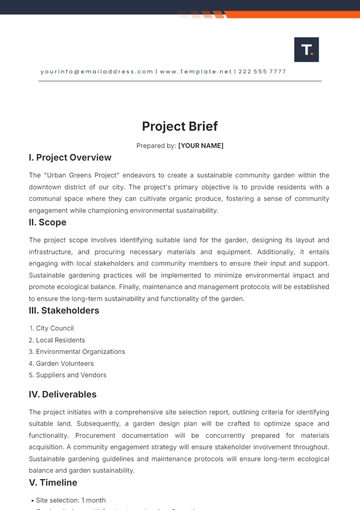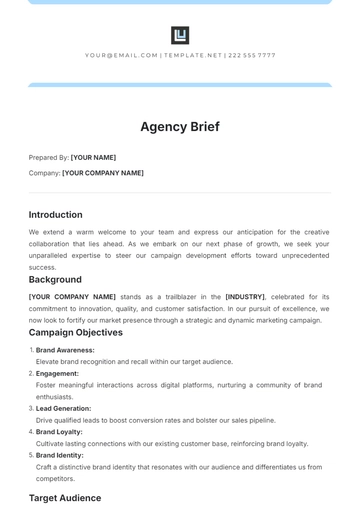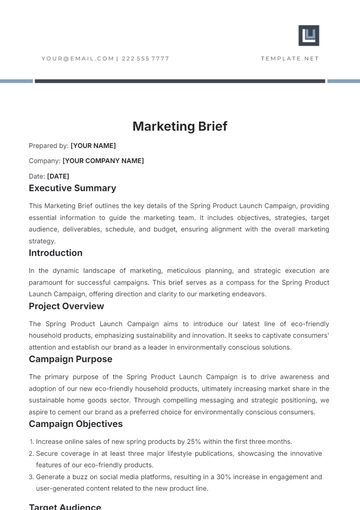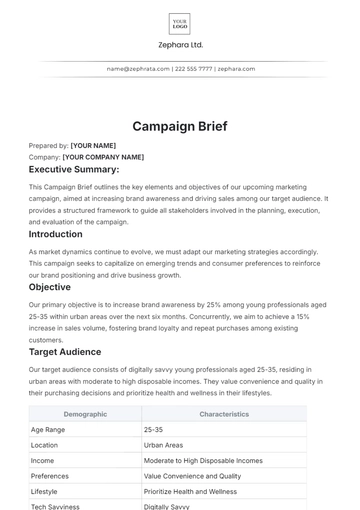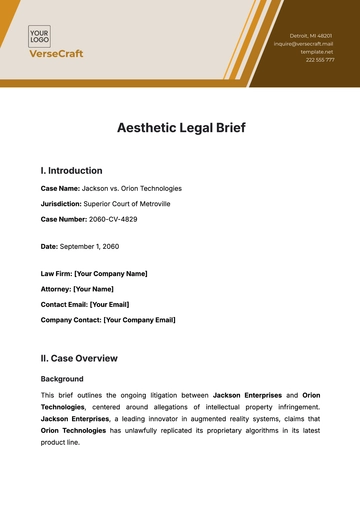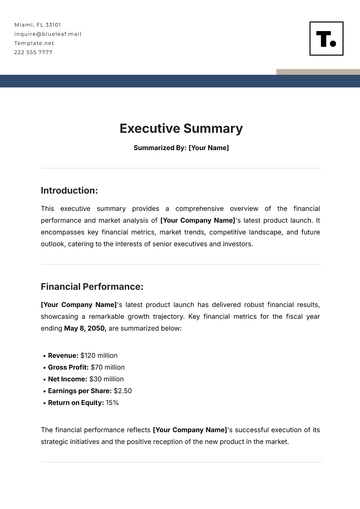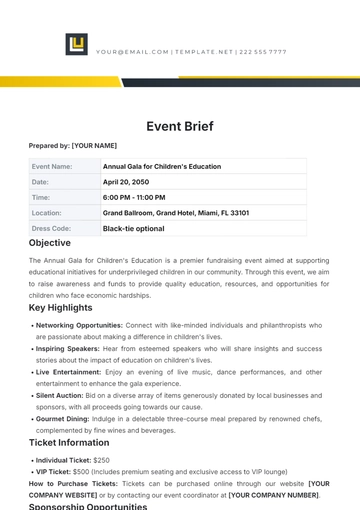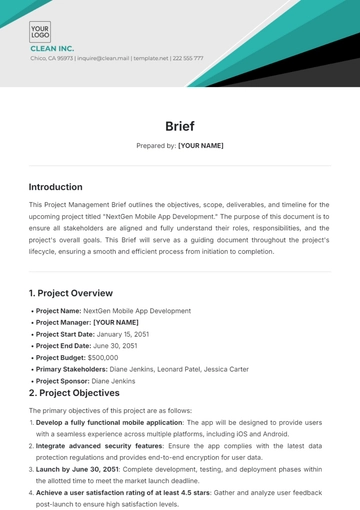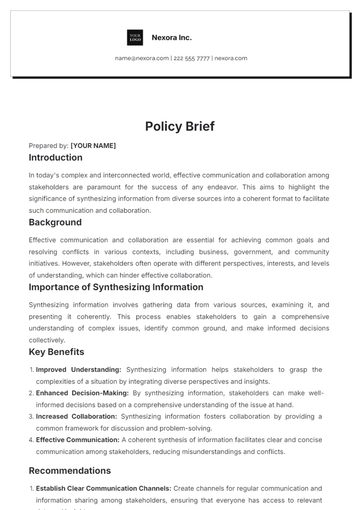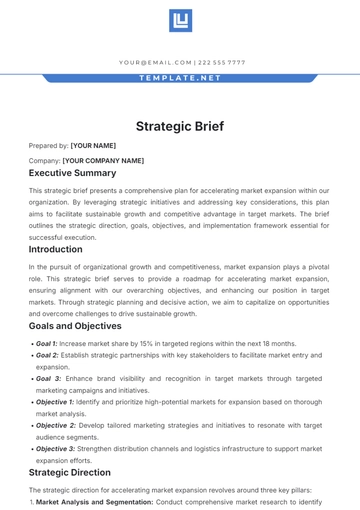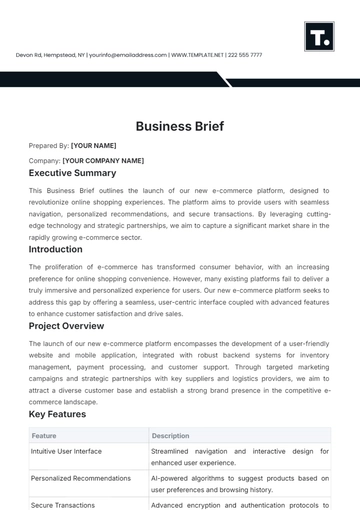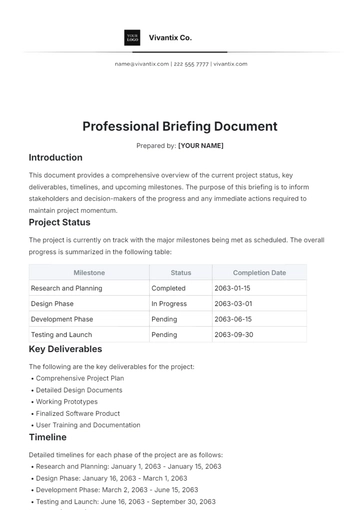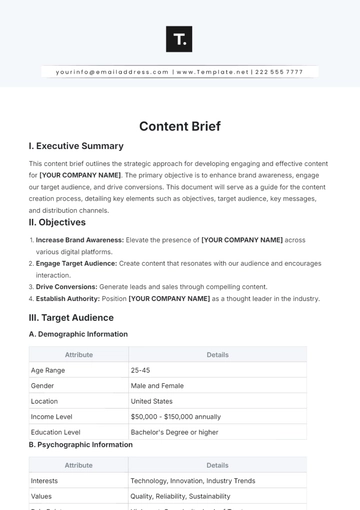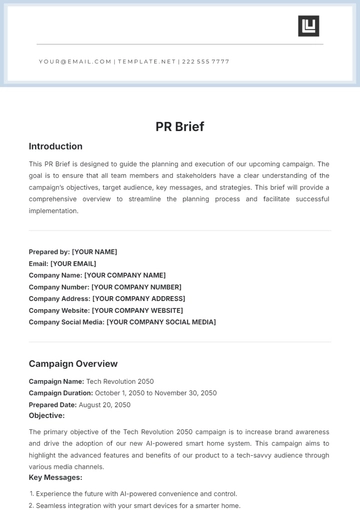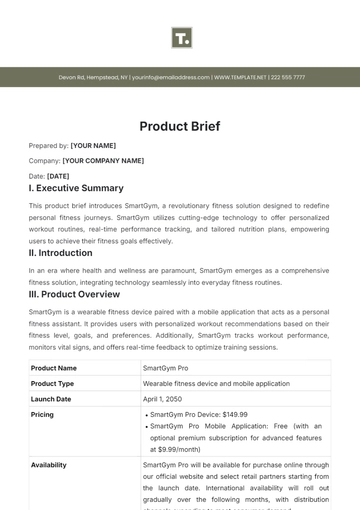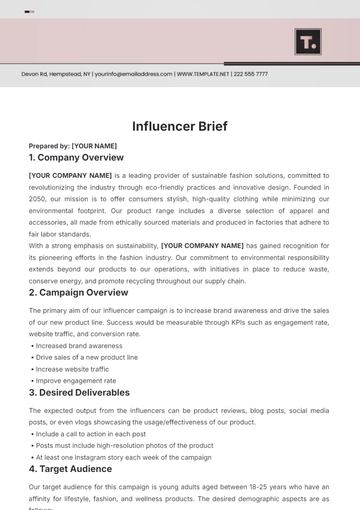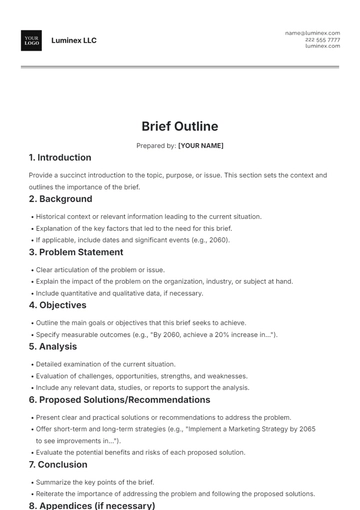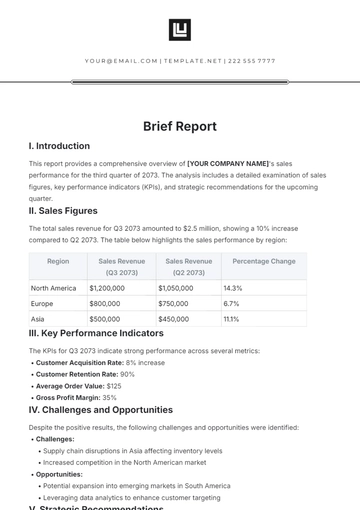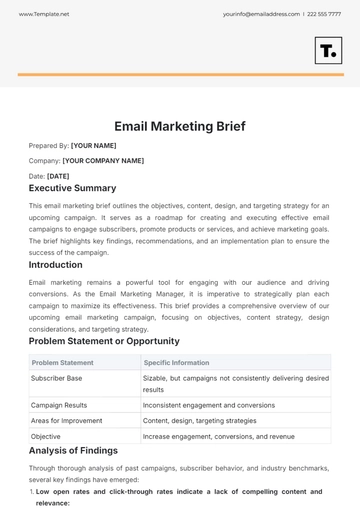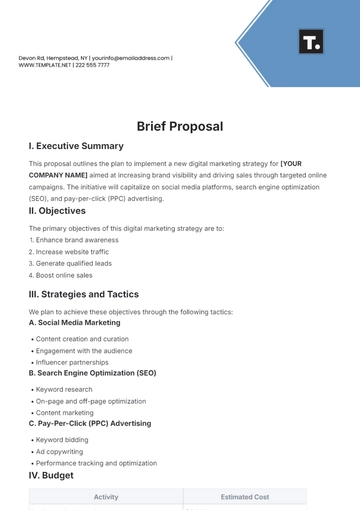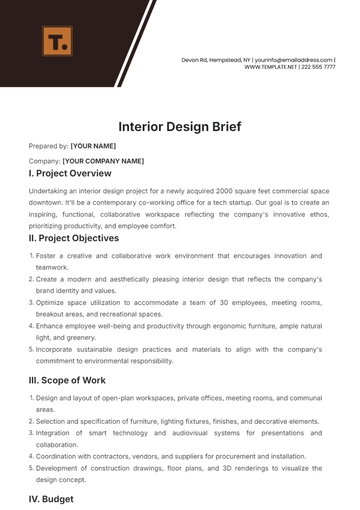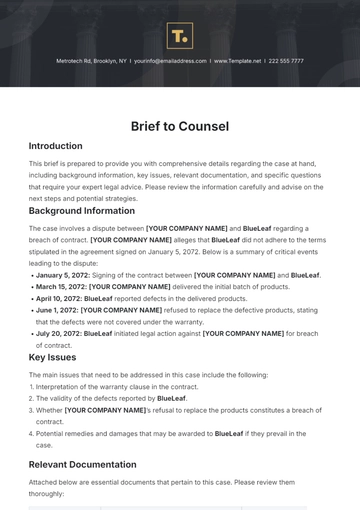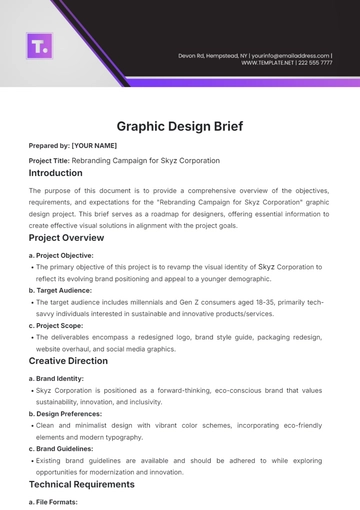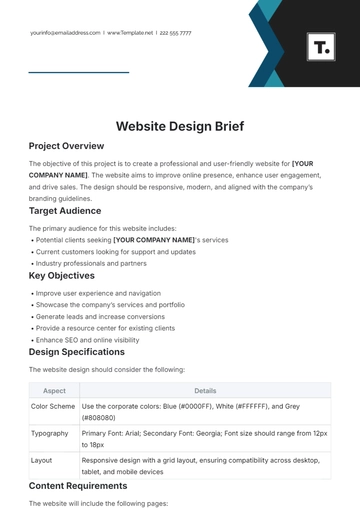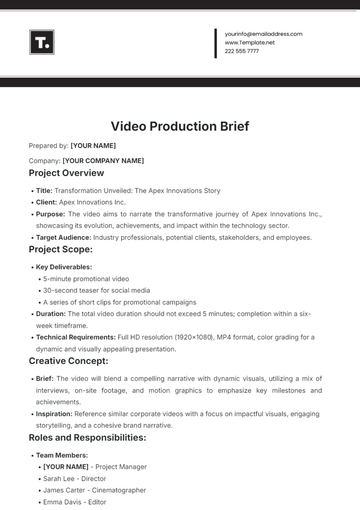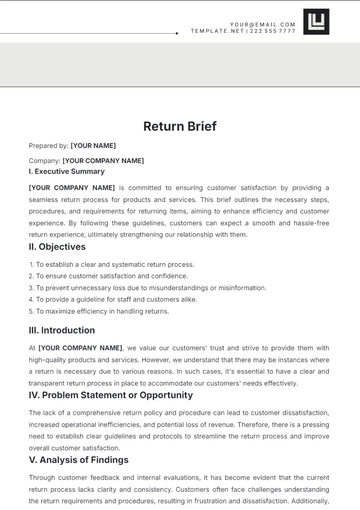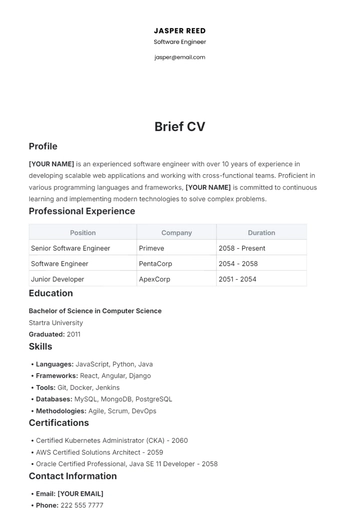Free Client Case Brief

I. Case Information
Case Name: [Holland v. Wright]
Case Citation: [2050 NY 123]
Jurisdiction: [New York]
Court: [Supreme Court of New York]
Judge: Honorable [Judge's Name]
Date Filed: [June 10, 2050]
Nature of Suit: Family Law - Divorce and Child Custody
II. Case Overview
In the matter of [Holland v. Wright], this family law case revolves around the dissolution of marriage between [Evelyn Holland] and [Julian Wright]. The parties were married on [May 5, 2050], and the marriage has since faced irreconcilable differences leading to the filing of a petition for divorce. The primary issue at hand is the equitable distribution of marital assets, including real property, financial accounts, and personal belongings, as well as child custody arrangements for their two minor children.
III. Key Facts
Marriage Date: [May 5, 2050]
Filing Date of Divorce Petition: [June 10, 2050]
Minor Children: Two children, ages [8] and [10], named [Emma] and [Noah] respectively.
Marital Assets: Include the family home located at [123 Oak Street, Springfield], joint bank accounts, retirement accounts, vehicles, and personal property.
Allegations: Both parties have alleged instances of marital misconduct and have expressed differing views on child custody and support.
IV. Legal Issues
The central legal issue in this case is the equitable distribution of marital property and assets in accordance with [New York] family law statutes. Additionally, the determination of child custody arrangements based on the best interests of the children and establishing appropriate child support obligations are significant legal matters. These issues will profoundly impact the financial and emotional well-being of the parties involved.
V. Relevant Laws and Precedents
Statutes: Relevant statutes include [New York] statutes governing divorce, property division, child custody, and child support, such as [New York Domestic Relations Law Article 13 (Equitable Distribution of Marital Property)].
Case Precedents: Precedents such as [Fields v. Fields] have addressed similar issues in New York courts, providing guidance for equitable distribution of marital property and determination of child custody arrangements.
Legal Principles: The court will consider legal principles such as the best interests of the child standard and factors for equitable distribution of marital property. These principles will guide the court in reaching a fair and just resolution while adhering to [New York]'s family law statutes.
VI. Arguments Presented
[Evelyn Holland]'s Arguments:
Equitable Distribution: [Evelyn] argues for an equitable distribution of marital assets, citing her contributions to the marriage and her role as the primary caregiver for the children.
Child Custody: She seeks primary physical custody of the children, emphasizing her close relationship with them and her ability to provide a stable and nurturing home environment.
[Julian Wright]'s Arguments:
Marital Misconduct Allegations: [Julian] alleges marital misconduct on the part of [Evelyn] and seeks to limit her share of the marital assets accordingly.
Shared Custody: He advocates for shared physical custody of the children, asserting his parental rights and involvement in their lives.
VII. Court Rulings and Outcome
Trial Court Decision: The trial court's decision is pending, with a scheduled hearing date of [August 15, 2050].
Appellate Court Decision (if applicable): N/A
Current Status: The case is currently in the pre-trial phase, with discovery ongoing and mediation sessions scheduled to facilitate settlement discussions.
VIII. Implications and Recommendations
Implications: The court's decision will have significant implications for the future financial stability and well-being of [Evelyn] and [Julian], as well as the emotional welfare of their children.
Recommendations: It is recommended that both parties continue to engage in good faith negotiations and consider alternative dispute resolution methods, such as mediation, to reach a mutually acceptable resolution outside of court.
- 100% Customizable, free editor
- Access 1 Million+ Templates, photo’s & graphics
- Download or share as a template
- Click and replace photos, graphics, text, backgrounds
- Resize, crop, AI write & more
- Access advanced editor
Discover the ultimate legal companion on Template.net! Our Client Case Brief Template offers an editable and customizable solution for legal professionals. Crafted to perfection, it's accessible and editable in our Ai Editor Tool, empowering you to create comprehensive case briefs effortlessly. Unlock your legal prowess today!
